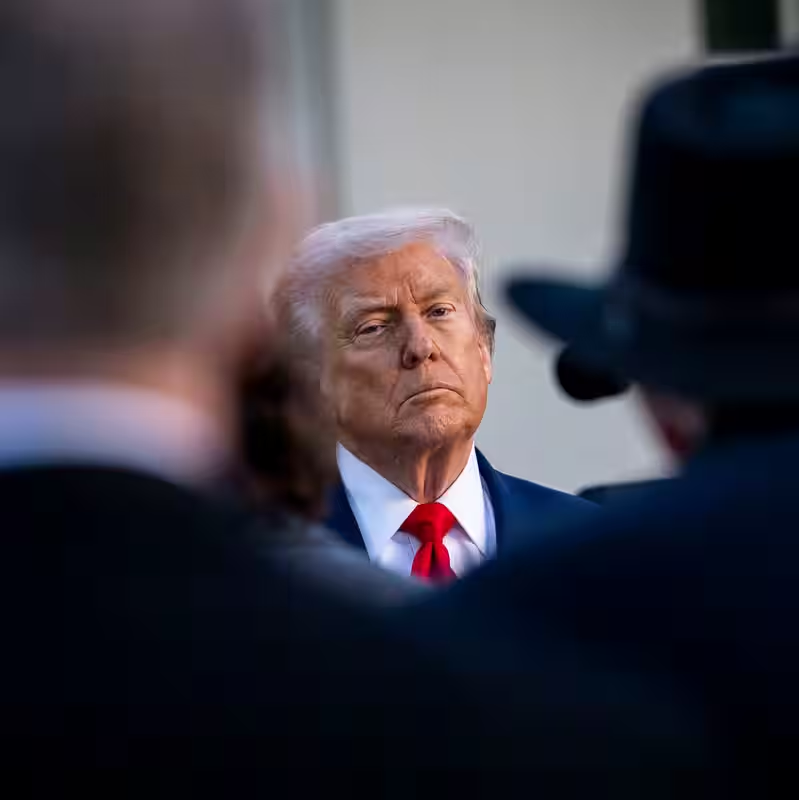Just as his sweeping federal hiring freeze was set to expire, former President Donald Trump has issued a new executive order that effectively maintains tight control over who gets hired in the U.S. government—but with a major twist: only his political appointees can approve new hires.
The move, announced Wednesday, replaces the blanket hiring freeze that had been in place since January 20 with a more nuanced—but arguably more controversial—system that critics say politicizes the federal workforce like never before .
Trump’s New Executive Order: A Closer Look
Under the new directive, no federal civilian position—whether newly created or currently vacant—can be filled without explicit approval from senior political leadership within each agency. The order mandates the creation of “strategic hiring committees” at every federal department, led by the deputy agency head and the chief of staff to the agency head—both of whom are political appointees .
These committees will now have the final say on which roles can be filled and who is deemed acceptable to fill them, with the stated goal of ensuring that “hiring is consistent with the national interest, agency needs, and the priorities of my administration,” according to the executive order .
Exceptions to the Rule
While most federal hiring remains frozen, the order carves out key exceptions:
- Positions related to immigration enforcement
- National security roles
- Public safety jobs
- Any role specifically cleared by the Office of Personnel Management (OPM)
These exemptions suggest a targeted approach—prioritizing agencies and functions that align closely with Trump’s policy agenda.
How Federal Hiring Has Changed Under Trump
| Aspect | Traditional Process | Under Trump’s New Order |
|---|---|---|
| Who Approves Hires? | Career civil servants and HR professionals | Senior political appointees only |
| Hiring Criteria | Merit-based, standardized exams, experience | Alignment with administration priorities; new policy questionnaires |
| Speed of Hiring | Slow but consistent | Highly restricted; most roles frozen |
Experts Warn of a Politicized Bureaucracy
Don Kettl, emeritus professor at the University of Maryland and a leading scholar on public administration, called the move “a significant increase in political control over hiring.” He noted that in the past, career officials—nonpartisan civil servants—handled hiring decisions to maintain institutional neutrality and expertise .
“It restricts hiring more tightly than ever before, with upper-level approval for every position and the potential of a partisan screen for every employee,” Kettl said.
Tim Kaufman, a spokesman for the American Federation of Government Employees (AFGE), the largest federal labor union, echoed these concerns: “It looks like the order says that while there’s a hiring freeze for regular competitive service positions, political appointees at each agency can hire people who are ideologically in line with Donald Trump’s political agenda” .
Impact on Government Operations
Federal employees across departments have already reported severe strain due to prolonged vacancies. Many of these roles predate the Trump administration, and agencies had planned to fill them in 2025 to address backlogs in everything from tax processing to food safety inspections. With the new restrictions, those plans are now in limbo.
The White House has not responded to requests for comment on the new hiring rules.
What’s Next?
Legal and government watchdog groups are expected to monitor the implementation of these committees closely. If the new process is used to bypass civil service protections or install loyalists in technical roles—from scientists at the EPA to auditors at the IRS—it could trigger lawsuits or congressional scrutiny.
For now, one thing is clear: the era of neutral, merit-based federal hiring is facing its most serious challenge in decades.




